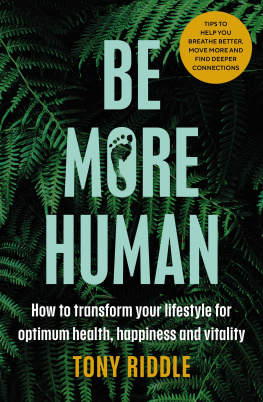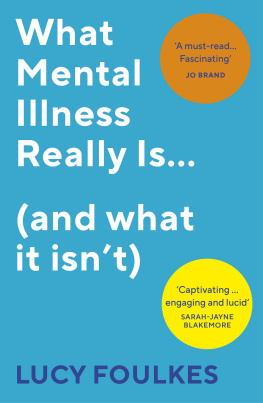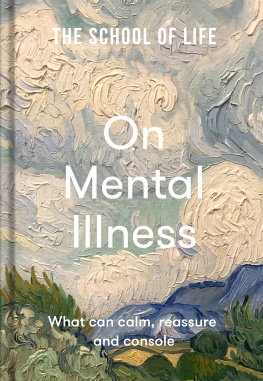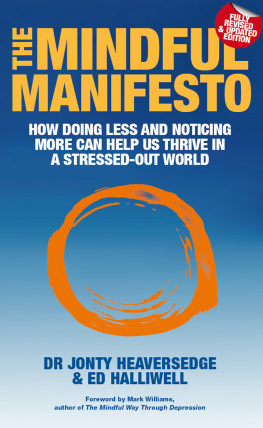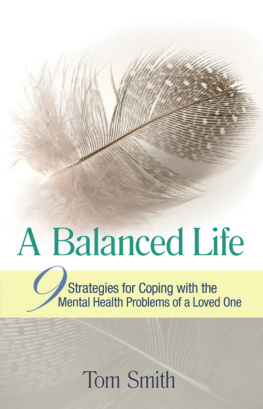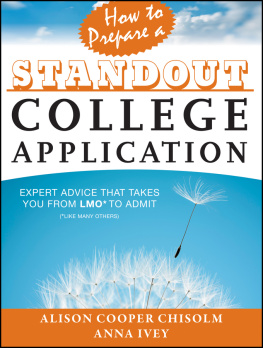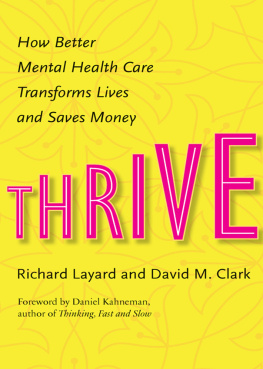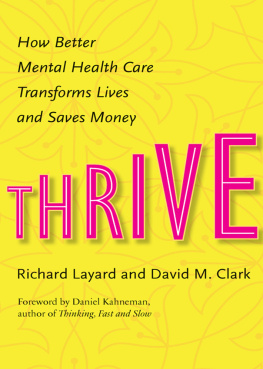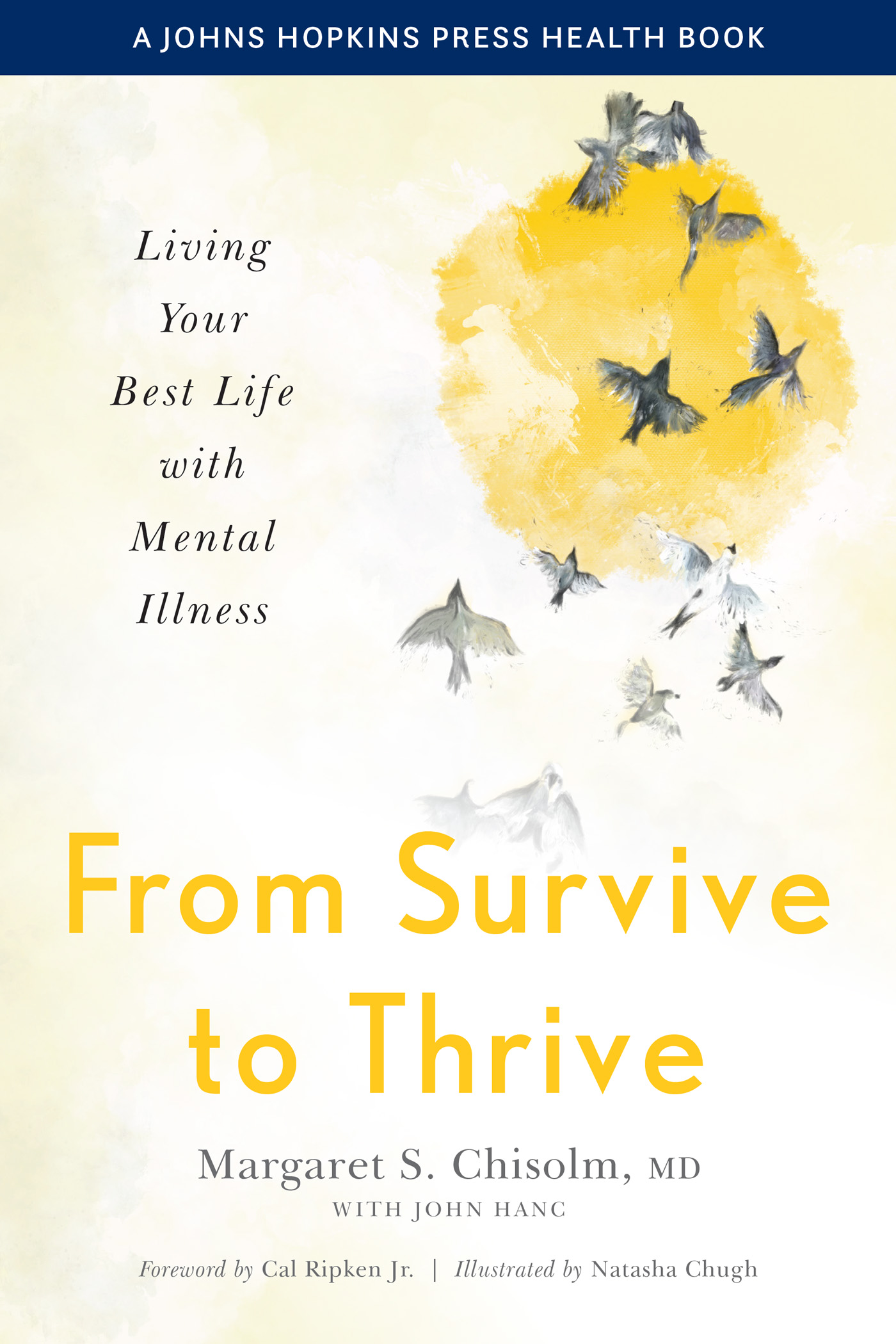Contents
Guide
from survive to thrive
A Johns Hopkins Press Health Book

from survive to thrive
Living Your Best Life with Mental Illness
Margaret S. Chisolm, MD
With John Hanc
Foreword by Cal Ripken Jr.
Illustrated by Natasha Chugh

Johns Hopkins University Press
Baltimore
Note to the Reader
This book is not meant to substitute for medical care, and treatment should not be based solely on its contents. Instead, treatment must be developed through a dialogue between the individual and his or her physician. The book has been written to help with that dialogue. The events described in this book are the real experiences of real people. However, the authors have altered many of their identities and, in some cases, created composite characters. Any resemblance between a character in this book and a real person therefore is entirely accidental.
2021 Johns Hopkins University Press
All rights reserved. Published 2021
Printed in the United States of America on acid-free paper
9 8 7 6 5 4 3 2 1
Johns Hopkins University Press
2715 North Charles Street
Baltimore, Maryland 21218-4363
www.press.jhu.edu
Library of Congress Cataloging-in-Publication Data
Names: Chisolm, Margaret S., author. | Hanc, John, author.
Title: From survive to thrive : living your best life with mental illness / Margaret S. Chisolm, MD, with John Hanc ; foreword by Cal Ripken Jr. ; illustrated by Natasha Chugh.
Description: Baltimore : Johns Hopkins University Press, 2021. | Series: A Johns Hopkins Press health book | Includes bibliographical references and index.
Identifiers: LCCN 2020045434 | ISBN 9781421441580 (hardcover) | ISBN 9781421441603 (ebook)
Subjects: LCSH: Mental illnessAlternative treatment. | Psychotherapy. | Positive psychology. | Self-care, Health.
Classification: LCC RC480.5 .C48 2021 | DDC 616.89/14dc23
LC record available at https://lccn.loc.gov/2020045434
A catalog record for this book is available from the British Library.
The questionnaire in is from T. J. VanderWeele, On the Promotion of Human Flourishing, PNAS, 31:8148-56.
Special discounts are available for bulk purchases of this book. For more information, please contact Special Sales at .
To Michael
foreword
Cal Ripken Jr.
When I was first asked to join the advisory council for the Paul McHugh Program for Human Flourishing, I had to ask the obvious question: What is flourishing? I knew the literal definition, but how was it going to be applied in helping others?
As a baseball player I did flourish. I had a dream to be a big league baseball player, and I worked very hard toward that goal. To say that things worked out would be an understatement. I was enshrined in the National Baseball Hall of Fame and won many awards, but thats not necessarily how I would define flourishing. Flourishing comes from within. It was my own personal sense of accomplishment, which was a source of pride, that helped bring meaning to my everyday life.
Accomplishment in your life, big or small, might be the secret to a life well lived. It gives us a sense of purpose, and we all want our lives to have meaning.
These accomplishments can come from any and all aspects of your life. Now, I was super focused on work (actually playI had a fun job), but some of my most powerful feelings came out of my connections to my family and community. I had the great fortune of being teammates with my brother and my father. In fact, it was a first in Major League Baseball history to have a dad manage his two sons at the same time. So the experience was especially gratifying and fulfilling.
Billy, my brother, was my double play partner up the middle, as he played second base. The shortstop and the second baseman play a critical defensive role for a baseball team. We took that teamwork one step further, carrying it out at a higher level. Call it a better level of communication, or that we thought the same way, or that we were simply brothers and wanted to be the best. I thoroughly enjoyed that opportunity. Its the kind of enjoyment that sometimes we take for granted until its gone.
There was no double play situation that Billy and I thought we couldnt complete. I remember working with Billy when the hitter and the base runner on first were both extremely fast runners. He asked where I needed the ball to come from for me to complete the double play. I showed him the exact spot, which he then called my holster. He showed me his holster spot, and we both knew that if we were able to hit the holster we could finish the play. Im still trying to figure out that definition for flourishing, but I might have just found it with my brother Billy.
When I retired from baseball I was forty-one years old and got a bit lost trying to transition away from the game. I remembered one of my dads favorite sayings, which helped my thinking at the time. He used to say that in order to be successful, you must learn to adjust and readjust. It applies in baseball and life as well.
Well, I adjusted to life without baseball, maybe by simply acknowledging that the world doesnt revolve around baseball. I readjusted by creating a foundation with my family to honor the legacy of my dads life. Its called the Cal Ripken Sr. Foundation. We use baseball and the lessons of sports to give kids new opportunities to learn and grow. Many of the kids we serve face great challenges in their daily lives. To see them overcome family and peer issues, including major setbacks along the way, and succeed is so inspiring. To see these kids flourish gives me a much better sense of what the word means, for myself and especially for the kids.
Speaking of my dad, his dream of playing in the big leagues ended with an injury. He adjusted to being a coach and readjusted his life to one of teaching others to fulfill their dreams. One of his greatest skills was his ability to make you feel good about yourself. I call it filling your chest with air. When he gave us a task or chore like cleaning up our bed-rooms or cutting the grass, hed always take the time to look over our work. Hed say, Look how good your room looks now you did that you should be proud. Or, Look how straight your lines are in the grass, thats great work.
One of my favorite memories of chores relates to edging the driveway, which was definitely not my favorite chore. We were given two nail spikes, some string, and a hatchet. The spikes and the string were to help us create a straight line along the driveway. We used the hatchet to cut the grass on an angle. From the perspective of my brother and me, these were archaic tools. We were so jealous of our next door neighbors electric edger. How could Dad really expect us to do a good job with these antiquated tools? Well, we did a great job, and he was thrilled with our work once he inspected it. He bragged about us to anyone who would listen. Teaching and being helpful to others was so meaningful to Dad. Now, that is flourishing all the way around.
I turned sixty last year, and Ive found myself getting more philosophical with age. I ponder questions like, What is a good life? Whats the meaning of your own life? Whats a successful life? We all search for an answer. But Ive learned that the answer may lie not in some great flash of philosophical insight but rather through what Dr. Chisolm identifies in this book as the four pathways to flourishing: family, work, education, and community. These are the components of a successful and meaningful life.



